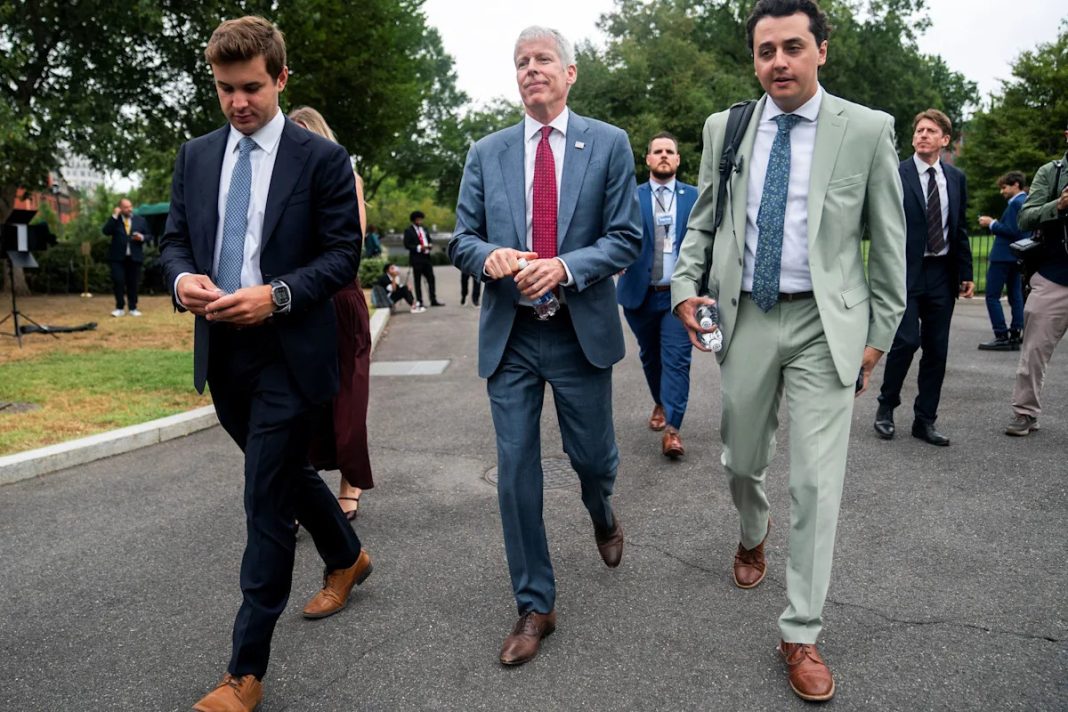The News
US Energy Secretary Chris Wright will warn European leaders in Brussels today that the EU’s climate regulations put the region’s energy security at risk and will get in the way of a recent commitment to buy $750 billion in energy products from across the Atlantic.
“Europe’s embrace of a climate agenda and a march to net zero was wrong,” Wright told reporters, arguing that it constrained the bloc’s access to new energy sources just as it was rushing to stop oil and gas imports from Russia following the 2022 Ukraine invasion.
US gas producers are eager to sell more to Europe, he said, but concerned about the legal exposure and cost of compliance with regulations targeting methane emissions across the gas supply chain and ESG-related corporate reporting requirements. “We’re here to work on removing non-tariff barriers that are getting needlessly in the way of bringing more energy into Europe,” he said, speaking on the sidelines of the Gastech conference in Milan.
Tim’s view
In terms of sheer size, Asia is still the biggest prize for US gas exporters. But Wright’s anti-regulatory campaign underscores that the Trump administration still views the EU as critical too, both in terms of sales and geopolitics. Selling $750 billion in energy to Europe in the next three years is probably never going to happen no matter what: Neither Washington nor Brussels can dictate the flow of global energy and, even if they could, the sum is beyond what the US can supply or what the EU can buy.
But Brussels needs to at least demonstrate some kind of progress toward making it happen, or risk inviting another escalation of tariffs. Wright’s visit will test how willing they are to compromise on their climate rhetoric in the interest of appeasing Trump.
For the Trump administration, proceeds from LNG sales to Europe are less important per se than locking in progress on the construction of more export terminals before the next administration has a chance to interfere. And that will require a shift in the nature of those sales. Since the invasion of Ukraine, Europe has mostly bought US LNG on the spot market, willing to significantly outbid buyers in Asia because it had no other option. Now, US sellers are pushing for long-term sales contracts that make it much easier to get the necessary billions of dollars to finance a new export terminal. Some of those deals have already happened, most recently a 20-year deal between Italian oil and gas major Eni and the US exporter Venture Global. ExxonMobil said this week it is chasing similar deals.
But LNG suppliers complain that Europe’s ESG rules represent a liability to long-term contracts. Investment in some new export terminals is on hold while the US-EU regulatory tussle plays out, Charlie Reidel, president of the Center for LNG, an industry group, told Semafor. At a minimum, Reidel said, the EU should delay the start date for the rules, and allow any long-term contracts signed before then to be grandfathered in.
Brussels has mostly shied away from supporting long-term LNG contracts because they undermine the narrative that Europe is quickly moving away from fossil fuels, and because signing them amounts to an investment in US gas production, as well as the terminal itself. But with the threat of Russia on one side, and the threat of an angry Trump on the other, it may have little choice.
Room for Disagreement
Not everyone in the industry sees Europe’s climate rules as an obstacle. Russell Hardy, CEO of Vitol, one of the world’s biggest and most profitable commodity trading companies, told Semafor that Europe is still an increasingly important target for LNG sales. “Even if those rules do impact some companies going forward, that’s not to say the market isn’t open,” he said. “Access to terminals, access to grids and pipelines, access to customers, are all pretty good.”
They may be too good, in fact: Patrick Pouyanné, CEO of Total Energies, which is the world’s top buyer of US LNG, said this week that if all the US export terminals under consideration do come online, the world will face a long-lasting gas glut: “We are building too much.”
Notable
-
Europe is weighing new sanctions against Russia’s energy sector, as well as punitive tariffs on China for its purchases of Russian oil — and the US is open to joining in, the Financial Times reported.

